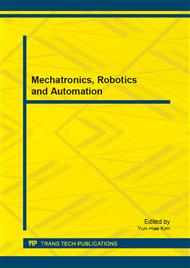p.2205
p.2209
p.2214
p.2219
p.2224
p.2228
p.2232
p.2237
p.2241
A Thematic Curriculum Analysis System for early Childhood Education: Initial Evaluation
Abstract:
Contrary to the elementary school and high school, the curriculum of the kindergarten is more flexible and dynamic. In recent years, the integrated curriculum approach and the thematic curriculum approach based on constructivism have being gaining more attention in Taiwan. The thematic curriculum emphasizes that the inter-disciplined and student-centered learning activities is designed based on children's interests, not solely determined by the teachers. Therefore, teachers have to monitor the curriculum development and children's learning status simultaneously. Under these conditions, a system of curriculum analysis is a necessary aid to those teachers. The purposes of this study are: First, design and implement a thematic curriculum analysis system for early childhood education, which provides feedback for curriculum supervisor. Second, evaluate the impacts of this system on the teachers abilities in curriculum design. According to needs assessment of 15 kindergarten teachers and curriculum supervisors, the researchers constructed the curriculum analysis system which provides goals, concept, initiator, activity style, time, skill, attitude, content, and teachers reflective thinking as the analysis units. The system evaluated by the 15 teachers and curriculum supervisor. The reports showed the system improved the quality of thematic curriculum in kindergartens.
Info:
Periodical:
Pages:
2224-2227
Citation:
Online since:
August 2013
Authors:
Price:
Сopyright:
© 2013 Trans Tech Publications Ltd. All Rights Reserved
Share:
Citation:


